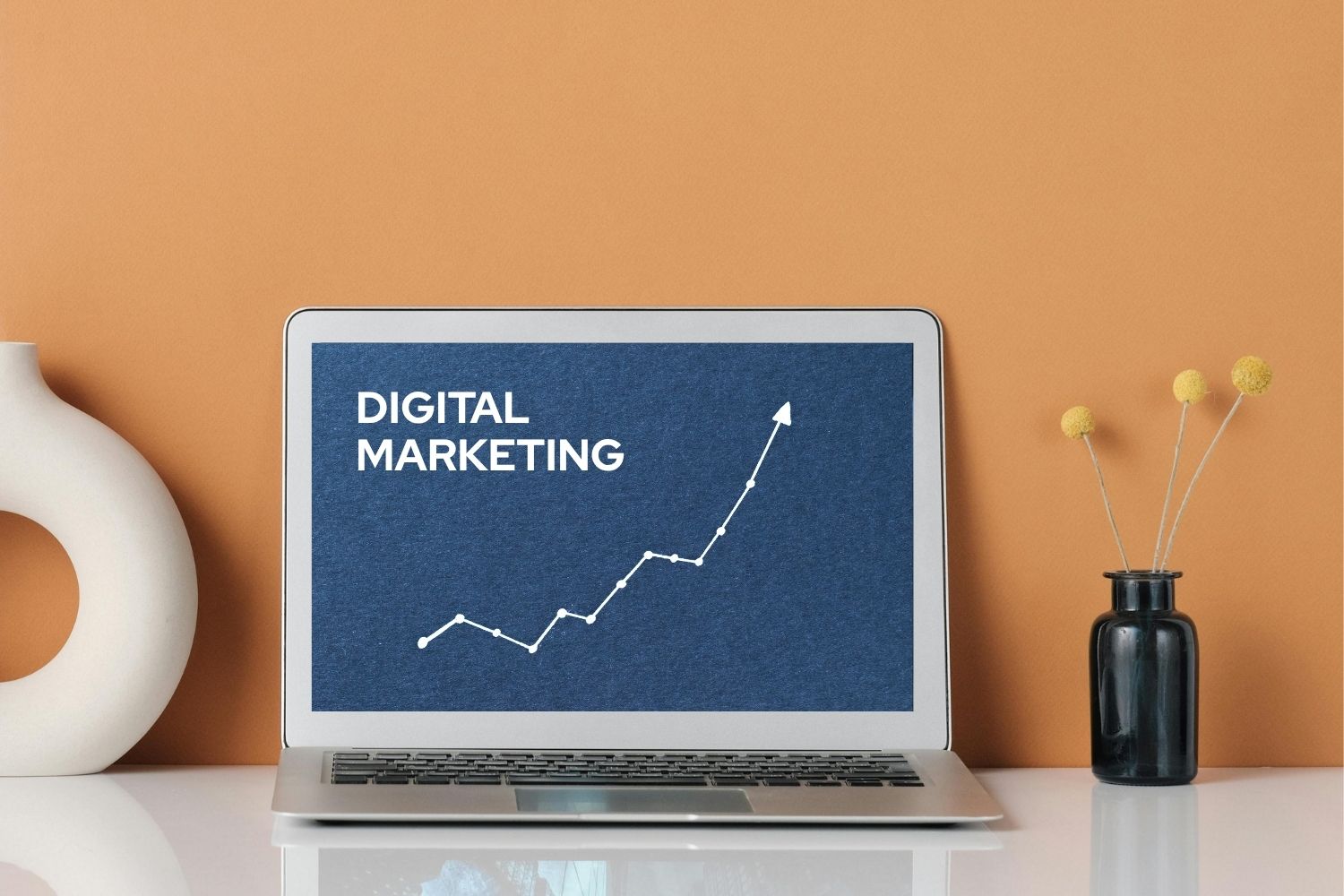If you are a small business owner, you’ve probably heard a hundred times that you need to be online. So what does that actually mean in practical terms? How do you turn your online presence into a steady flow of enquiries and sales?
As a Marketing Strategist and Mentor working with small businesses, I know that time and resources are often tight. The good news? You do not need to do everything to be successful at digital marketing. You just need to focus on a few key digital strategies that support your business goals. In particular, you should focus on building your brand, nurturing relationships and converting these into enquiries and sales.
Digital marketing doesn’t have to feel complicated or overwhelming. Whether you’re a small business owner or a growing brand, make intentional choices that are right for your business and the audience you want to reach. Here are seven simple digital marketing strategies you can follow:
1. Start with a Strong Online Presence (Yes, Your Website Matters)
Your website is your digital introduction to clients. It is where potential clients will land when they want to learn more about your business, your products or services and if you’re a legitimate identity. It should be clear, easy to navigate and focused on your ideal customer’s needs.
- Ensure it is mobile-friendly and fast-loading.
- Include strong calls-to-action (eg Book a Call, Get a Quote or Try a Free Sample).
- Use customer-focused messaging and highlight how do you solve their problem.
Tip: Add a lead magnet to your website to capture email addresses and build you email list. Examples include a free checklist, eBook or quote request form. For more information you can read my article, Your Guide to Create an Irresistible Lead Magnet.
2. Leverage Social Media to Build Trust and Community
Being present on the right social media platforms can help you connect with potential customers and deepen relationships with existing ones.
- Share valuable content such as tips, behind-the-scenes, customer stories, how-to guides.
- Use video. This can include a combination of reels, lives and stories help show the human side of your business.
- Encourage two-way conversation and reply to comments and DMs promptly.
Tip: Don’t try to be on every social media platform. Focus your time and effort on 1-2 platforms where your audience is most active.
3. Invest in Email Marketing
Yes, email marketing really works! Email marketing is still one of the most powerful tools for nurturing leads and driving sales.
- Send helpful, relevant content on a regular basis. Think: value first, sell second.
- Share updates, promotions, new products and tips your audience will appreciate.
- Use segmentation to tailor your messages for better engagement.
Automation tools such as MailChimp, MailerLite or Campaign Monitor make it easier than ever to stay in touch with your audience, nurture relationships and increase sales. Learn more by reading How to Master Email Marketing.
Tip: Instead of sending the same message to everyone, tailor your emails to specific groups. For example tailor your message for past customers, new subscribers and people who downloaded a lead magnet. This makes your emails more relevant, boosts engagement and increases the opportunity of conversions.
4. Optimise for Search Engines So People Can Find You
Search engine optimisation (SEO) isn’t just for big brands. local SEO can help your small business show up when people are searching for your services in your local area.
- Keep your Google Business Profile up to date.
- Use relevant keywords on your website and blog.
- Encourage happy customers to leave online reviews.
This boosts your visibility and builds trust with potential buyers before they even contact you. For more tips, you may like to read The Importance of Local Area Marketing.
Tip: Ensure your business name, address, phone number and opening hours are accurate on your Google business profile. Add high-quality photos, respond to reviews and post regular updates. This helps you show up in local searches and on Google Maps when people nearby are looking for your services.
5. Use Online Ads Strategically
You do not need a huge budget to see results from paid advertising. Investing some of your marketing budget for online ads can be beneficial
One of the biggest misconceptions about online advertising is that it is only effective if you have a large marketing budget. The truth is, small businesses can see great results with a modest ad spend, if the strategy is smart and targeted.
Online platforms such as Meta (Facebook and Instagram), Google Ads, and even LinkedIn allow you to set daily or campaign-based budgets that suit your budget. Whether you are spending $5 a day or $500 a month, what matters most is how well your ad is set up and who you are targeting.
- Start small with Meta (Facebook/Instagram) or Google Ads targeting specific audiences.
- Promote your lead magnet or a limited-time offer to get enquiries rolling in.
- Retarget people who have already visited your website or social pages.
When paired with a strong organic strategy, online ads can amplify your efforts and accelerate your sales results.
Tip: If you are unsure how to get started, connect with an online ads specialist to set up the campaigns for you saving you time. Once it has been created you can activate ads, test, measure and adjust as needed.
6. Create Value-Driven Content that Builds Relationships
Content marketing is more than just posting for the sake of it. Your digital marketing content should be focussed on creating useful, relevant content that positions you as a go-to expert.
Publish content that speaks to your audience, not at them. Share stories, behind-the-scenes moments, and real-life client experiences to build connection and trust. When people feel seen and understood, they are far more likely to connect and engage leading to loyal customers.
- Write blog posts that answer common client questions.
- Share tips, mini tutorials or industry insights in short-form videos.
- Consider creating a podcast, YouTube channel or a guest spot on someone else’s podcast.
Great content attracts the right people and builds credibility over time.
Tip: share content on a regular basis so that you are visible to your audience. Ensure it solves problems, answers questions and add value so that you position yourself as the expert they trust (and turn to) when they are ready to buy.
7. Track What’s Working and Adjust as Needed
One of the greatest things about digital marketing is that it’s measurable. You are not left guessing which part of your strategy is bringing in leads or sales, there’s real data to guide your decisions.
You can use free tools like Google Analytics, Meta (Facebook/Instagram) Insights, and email marketing reports to see how your audience is engaging with your content. These tools can tell you:
- How many people are visiting your website
- Where your traffic is coming from (social media, Google, email, etc.)
- Which posts, pages or emails are getting the most attention
- What content is specifically leading to conversions or enquiries.
These insights are incredibly valuable. They help you avoid spending time and money on strategies that are not delivering results, so you can focus more on what’s actually working.
Tip: Stay curious and flexible. What works today might change tomorrow, so be open to trying new approaches and strategies.
Digital marketing isn’t about doing everything, it’s about doing the right things in a way that aligns with your brand and genuinely serves your customers. When approached with intention, your online presence becomes one of your most powerful sales tools. It helps people find you, trust you, and choose to buy from you.
If you are feeling overwhelmed or not sure where to begin, start small. Choose one or two strategies that feel achievable and build from there. Progress beats perfection every time. I invite you to book a 30 minute intro chat where we can explore some of your small business marketing challenges, book here.




